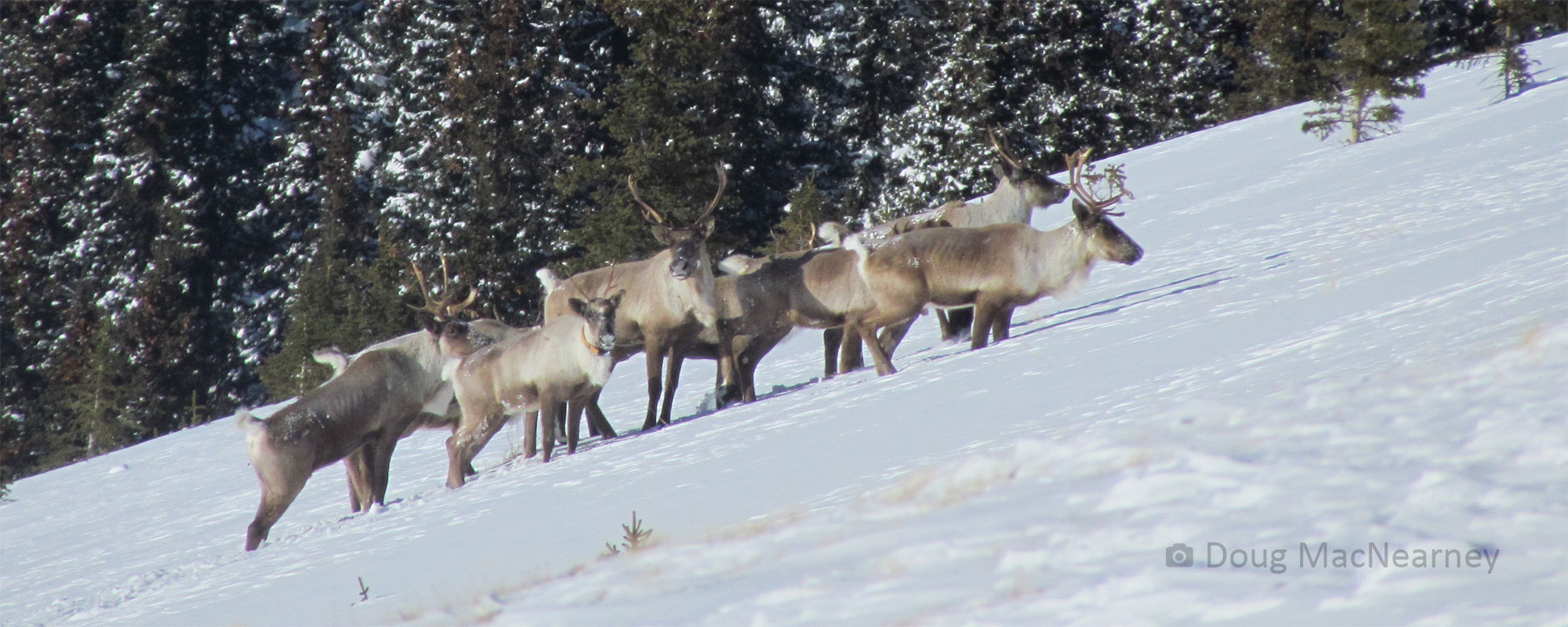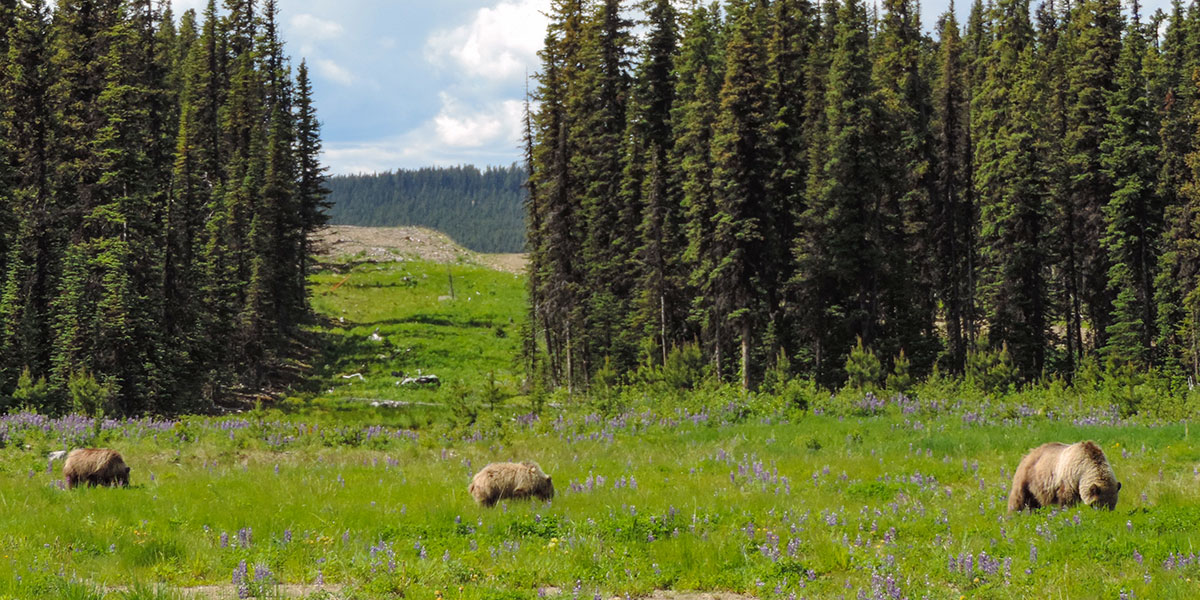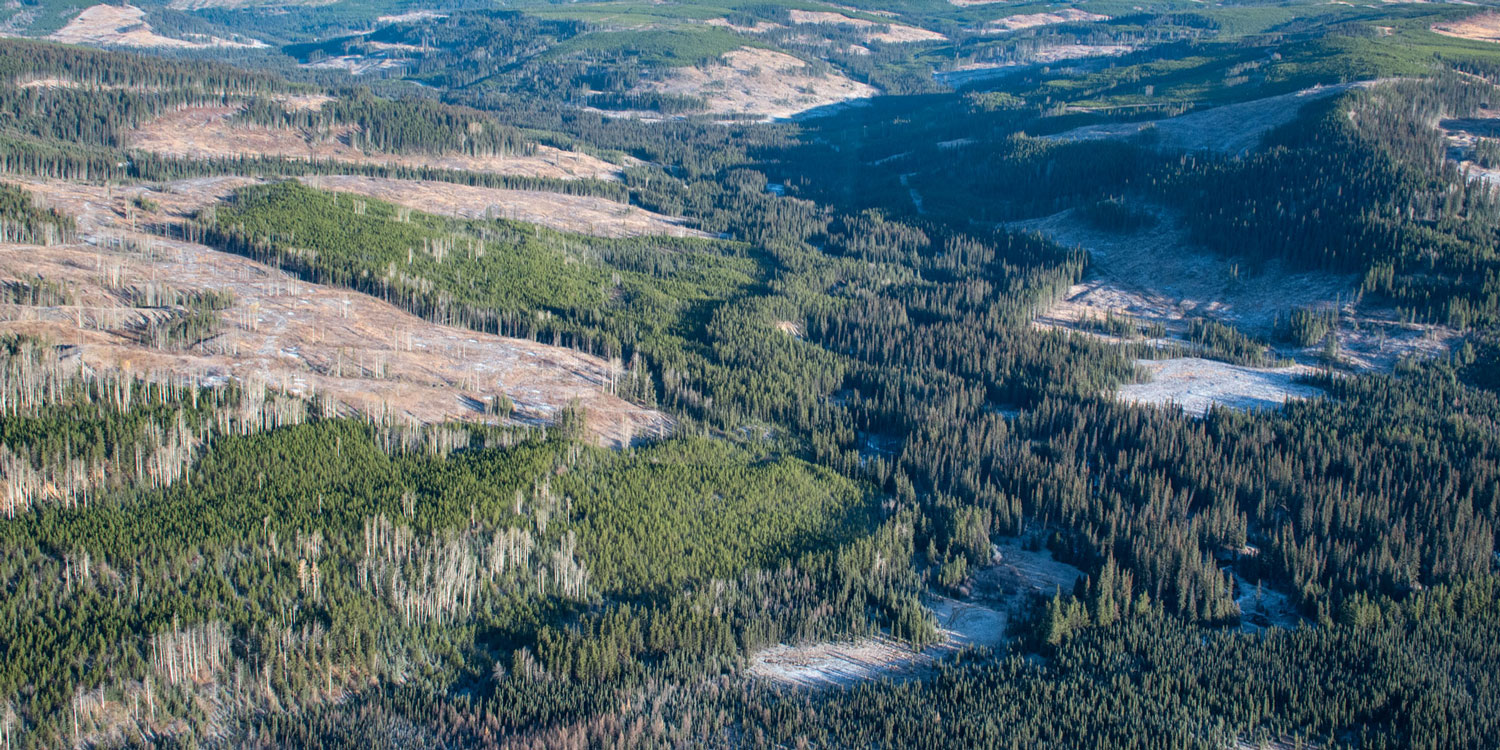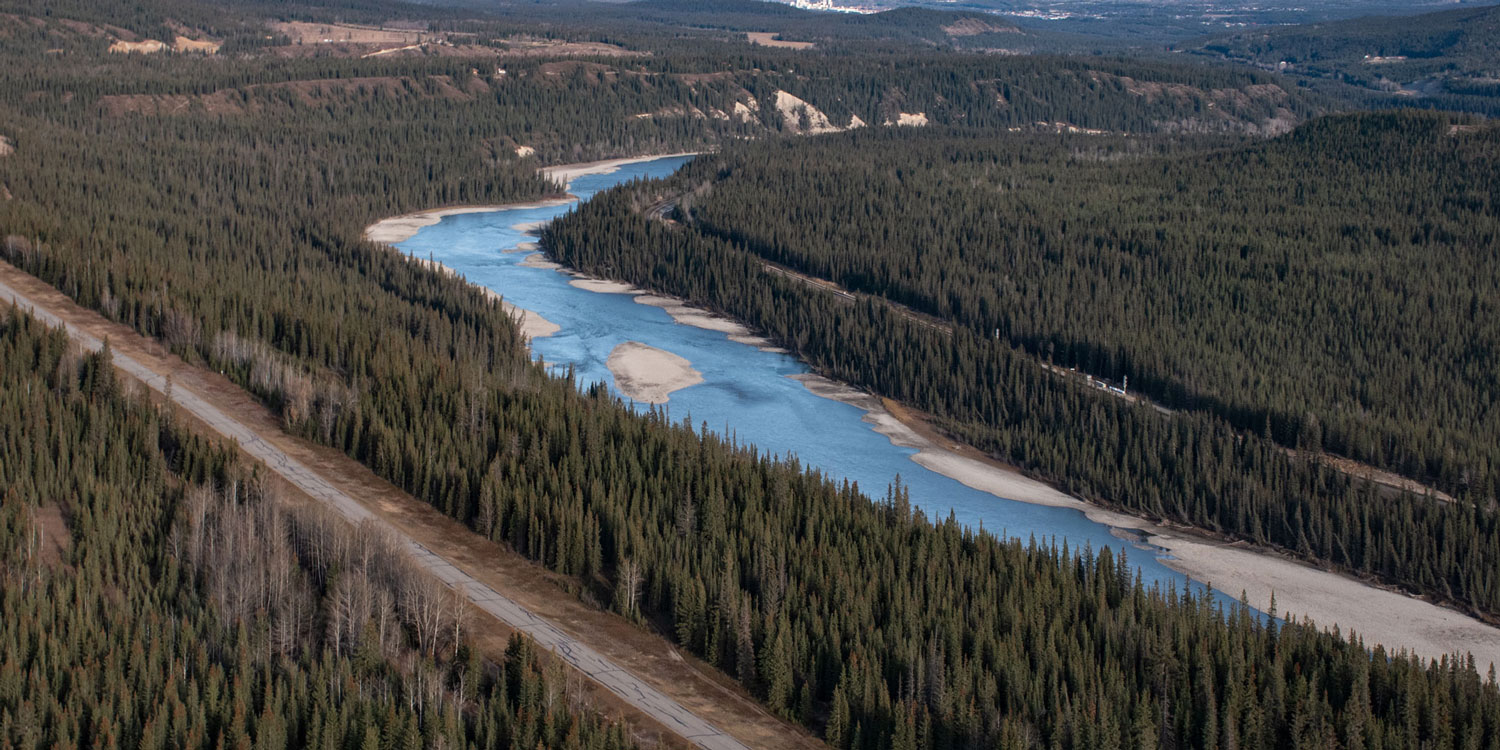Annual Research Forum Sparks Conversations
fRI’s Annual Research Forum was held October 1, 2013, at the University of Alberta’s Lister Centre. This year’s event centred on the theme Achieving Goals, Generating Results and was unique in that it was led by Alberta Land-use Knowledge Network’s Terri McHugh and Neil MacAlpine, who raised thought-provoking questions about emerging land-use issues. Throughout the day, the complex, multi-faceted nature of the questions fRI strives to answer was clearly visible as multiple sources chimed in to respond to attendee questions.
David Andison, program lead, Healthy Landscapes Program
The Healthy Landscapes Program is really about ideas and involves a fundamental shift in perspective from value-based sustainability to full sustainability, said Andison. Looking at an ecosystem in pieces cannot provide the whole picture, and the Healthy Landscapes Program is taking the approach of determining what Mother Nature would do, where we are, and what needs to be done to close the gap.
Wayne Thorp, program lead, Foothills Land Management Forum (FLMF)
Thorp talked about the federal government’s disturbance threshold of 65% and the fact that, according to traditional ways of measuring disturbance, the Little Smoky caribou range is 95% disturbed. The FLMF is focusing on how to reduce disturbance through its RAD and reclamation plans as well by supporting research that may redefine disturbance.
Keith McClain, program lead, Mountain Pine Beetle Ecology Program
McClain explained that the goal of the Mountain Pine Beetle Ecology Program is to restore damaged landscapes so they are healthy and can provide the goods and services often taken for granted. Research has provided a good understanding of the biology, but the backlog of damaged landscapes is growing, and there is a need to explore new silviculture practices to deal with a new landscape of dead and dying timber.
Laura Finnegan, program lead, Caribou Program
The new Caribou Program is working with partners, researchers, and government to guide science-based habitat restoration and landscape management, monitor efficacy of actions, increase understanding of the effects of landscape alteration on caribou, and meet federal and provincial targets for caribou conservation. Finnegan talked about the program’s research themes and projects under way as well as potential projects.
Daniel Chicoine, program lead, Tree Improvement Alberta (TIA)
Chicoine introduced TIA, fRI’s newest association, and its Tree Species Adaptation Risk Management Project. The project is important because there is a need to determine the genetic material that will be well adapted to the climate 75 years from now. Chicoine discussed the goals of the project, what’s been done to date, and what will be done in the future.
Axel Anderson, program lead, Water Program
Addressing cumulative watershed effects and building a framework to coordinate ongoing research and create a process for addressing those effects was one of the themes set in the first year of the Water Program. Anderson discussed the assessment procedure that has been developed and the questions that have been raised that are generating new research.
Ngaio Baril, project coordinator, Foothills Stream Crossing Partnership (FSCP)
Baril discussed the remediation management process for stream crossings. There are 2,300 crossings in the FSCP’s database, many requiring replacement at significant cost. Watersheds have to be prioritized, so one of the FSCP’s goals is to work with regulators to create and maintain a list of priority watersheds. Baril also discussed other goals, such as expanding both within and outside of the FSCP’s current operating area.
Gordon Stenhouse, program lead, Grizzly Bear Program
The program’s goal remains the same as it was in 1999—to provide knowledge and tools to help with grizzly bear conservation. Stenhouse shared the program’s accomplishments in 2013, reminding the audience that much of the work is only possible with long-term data sets. He discussed several interesting projects and models that have been built, as well as the need for setting recovery targets.
World Knowledge Café
For the first time, the research forum wrapped up with an innovative World Knowledge Café, led by McHugh and MacAlpine. The Healthy Landscapes Program, FSCP and Water Program were at one table, the Mountain Pine Beetle Ecology Program and TIA at another, and the Grizzly Bear Program, Caribou Program, and FLMF at a third. Everyone was encouraged to visit one or more tables to talk to the presenters and think about two questions: What do we know now, and what needs to happen next?
Participants quickly got into the spirit of the event, generating conversations about, for example, the need to maintain high-quality grizzly bear habitat based on research that shows where the best habitat is in Alberta, what’s being done with regard to subsurface water inventory and management, and how unexpected changes in weather or other factors could affect mountain pine beetle ecology research.






